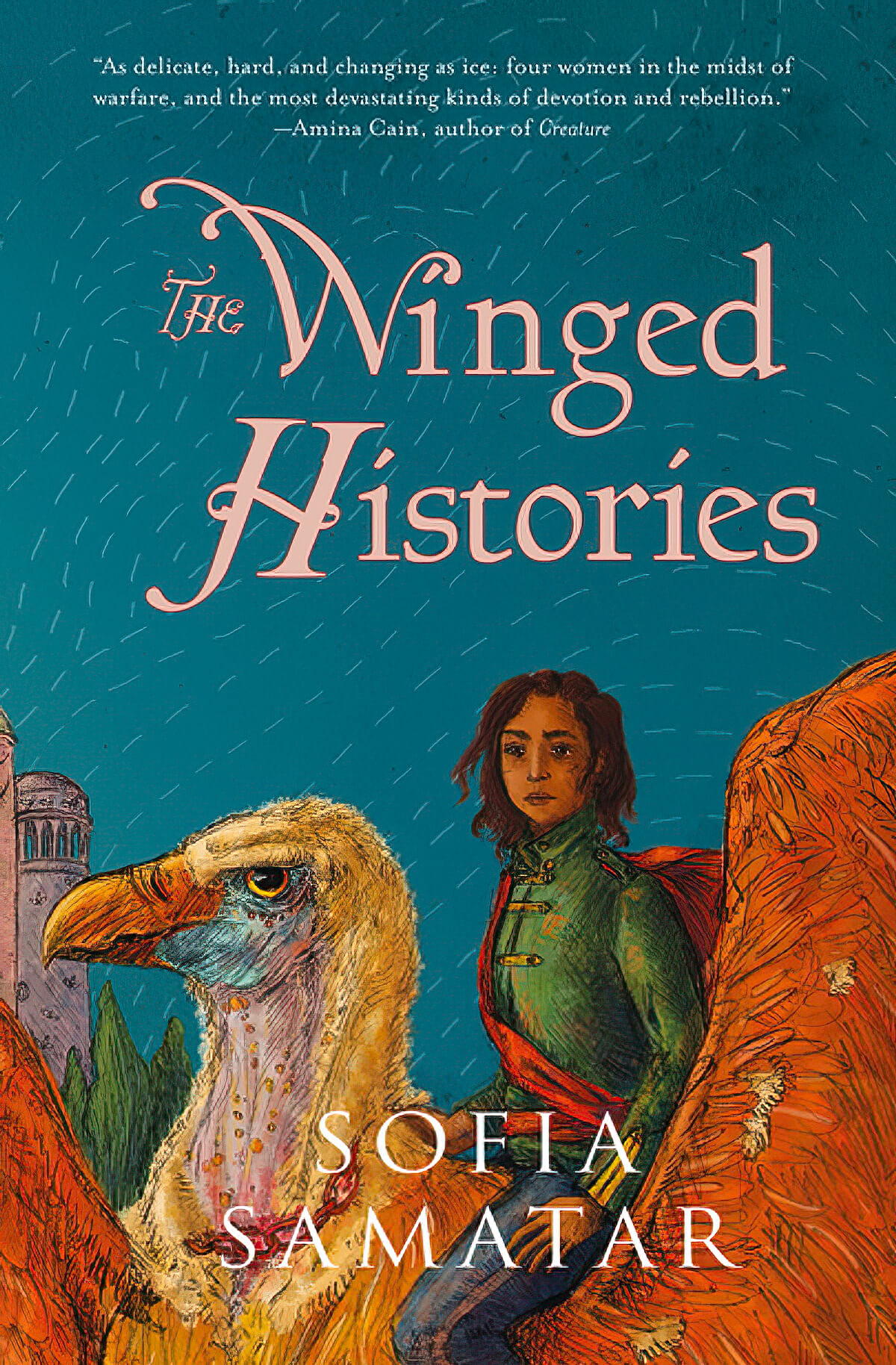The Winged Histories
Four women—a soldier, a scholar, a poet, and a socialite—are caught up on different sides of a violent rebellion. Using the sword and the pen, the body and the voice, they struggle not just to survive, but to make history.
Read an excerpt
Translation
Japanese (Ichida Izumi)
Finalist
2017 Locus Award
“As delicate, hard, and changing as ice: four women in the midst of warfare, and the most devastating kinds of devotion and rebellion.”
Amina Cain, author of Creature
“[H]er vampires, swordswomen, saints and singers are endlessly fascinating, their crossings and pairings like a beautiful and intricate dance.”
Amy Gentry, Chicago Tribune
“Samatar carries a great deal with her in the pages of The Winged Histories: beauty, wonder, and a soaring paean to the power of story.”
Jason Heller, NPR
“This book. This perfect book.”
Amal El-Mohtar, Lightspeed
“A nuanced and subtle tale of war, love, duty, family, and honor. It’s like polyphony–a chorus of voices singing different melodies, sometimes at odds, but ultimately harmonious. And moving. And exciting. Have I mentioned exciting?”
Delia Sherman, author of The Freedom Maze
“A highly recommended indulgence.”
N.K. Jemisin, The New York Times
“A lyrical immersion into a finely wrought world.”
Kirkus Reviews
“Above all, it’s a story about love–the terrible love that tears lives apart. Doomed love; impossible love; love that requires a rewriting of the rules, be it for a country, a person, or a story.”
Jenn Northington, Tor.com
“Sparse and magical, beautiful and terrible: The Winged Histories is a story spun out of stories and the lives of fierce women, each a warrior in her own right.”
Nalo Hopkinson, author of The Salt Roads
“Sofia Samatar’s second novel is an imagist epic fantasy, a feminist and anti-colonialist reworking of one of those spongy-thick novels with maps at the front (it has a map at the front) and, like her first novel A Stranger in Olondria, a book about books, reading, and language. It is dazzlingly beautiful and as close to perfect as a reader can hope.”
Jane Franklin, Rain Taxi

